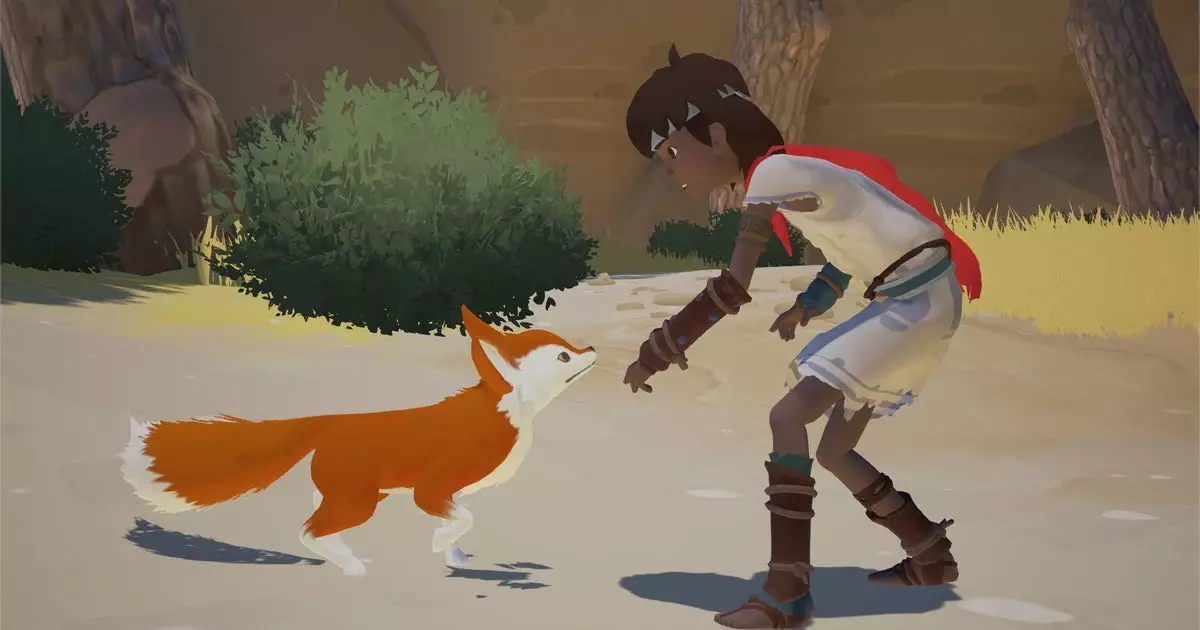Tequila Works, the beloved Spanish studio, has become a cautionary tale in the video game industry, illustrating the volatile nature of creativity intertwined with fiscal realities. Founded by Raúl Rubio and Luz Sancho, the studio quickly made a name for itself with its stunningly beautiful game, Rime. Unfortunately, the past year has not been kind. Following the abrupt loss of funding from the tech giant Tencent, the studio announced its insolvency, prompting significant layoffs and the departure of its founders. This series of events underscores the precariousness of artistic ventures in a landscape often dominated by financial speculation and market instability.
The heart-wrenching dissolution of Tequila Works serves as a stark reminder that behind every game celebrated by players lies a team of passionate creators. The combination of external market pressures and misaligned funding priorities has left a talented group of individuals grappling with uncertainty. Developers poured their creativity and soul into their projects, only for them to become collateral damage in a harsh economic climate. As a community, we should reflect on how we value gaming studios not only by their successes but also by the trials they endure.
An Auction of Dreams: What’s Left Behind?
In the wake of Tequila’s unfortunate fate, the studio now embarks on a sale of its assets through an open auction. The auction listings provide a glimpse into the projects that once buzzed with potential. Among them is The Ancient Mariner, an open-world narrative adventure that seeks to evoke human emotions as its core gameplay mechanic. Given its thematic lineage to Coleridge’s classic poem, this project hints at the studio’s consistent dedication to weaving deep narratives into gameplay, an approach they honed in Rime. However, the description feels like an awkward elevator pitch lacking the magnetic charm that characterizes Tequila’s previous works.
Another contender in the auction is Dungeon Tour, a concept that merges chaotic fun with cooperative gameplay—reminiscent of the joy found in titles like Overcooked. The whimsical premise, which involves leading hapless tourists through dynamically generated catacombs, sparks curiosity and highlights what could have been a delightful addition to the gaming landscape. Such concepts point to the studio’s ability to blend humor with engaging mechanics, offering glimpses of the innovative spirit that initially captured the hearts of gamers.
Yet the project with the most intriguing premise, Brawler Crawler, has been officially shelved. This title was to explore combat styles within a procedurally generated urban environment, promising an unpredictable and chaotic gameplay experience. Its cancellation is particularly poignant, as it signifies the loss of what could have been a vibrant addition to the action genre—another casualty of the studio’s financial downturn.
The Human Cost of Bankruptcy
As the auction proceedings unfold, the human element becomes increasingly relevant. The fates of Tequila Works’ staff remain a nagging uncertainty lingering in the air. While many former employees have embarked on the daunting search for new opportunities, their personal stories offer an invaluable insight into the heartache of a studio’s closure. Senior staff members such as Jose Luis Lara Romero and David Canela Lagunas are now, like many others, navigating the tumultuous job market.
Rob Yescombe, a collaborator on games such as Rime and The Invisible Hours, reflects poignantly on his time at Tequila Works, expressing gratitude for the studio’s embrace during a challenging period in his career. Such realizations underscore the power of community in the creative sector. The bonds formed in collaborative spaces endure even when the companies behind them dissolve, illustrating how shared experiences can provide comfort amidst disruption.
The story of Tequila Works is not just about the loss of projects or the sale of assets; it encapsulates the profound emotional toll faced by artists striving to bring their visions to life. While the gaming community mourns the loss of a beloved studio, it must also advocate for better support structures and recognition of the human stories behind the code—before another tragedy unfolds. The art of game development is too often a race against time and money, where the only victory is the joy experienced by the players, leaving the creators vulnerable in their pursuit of artistic expression.

